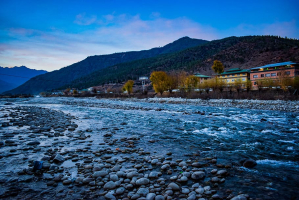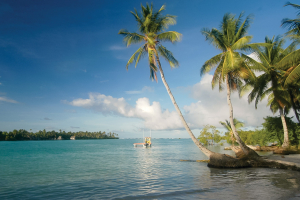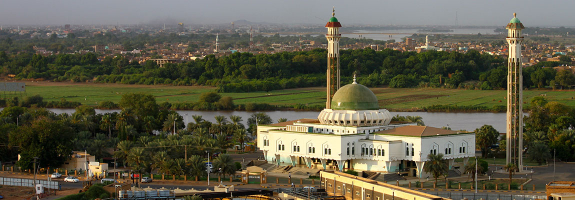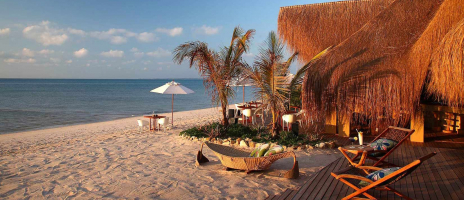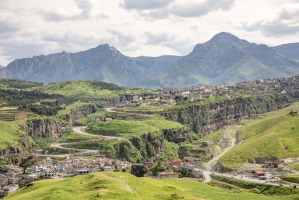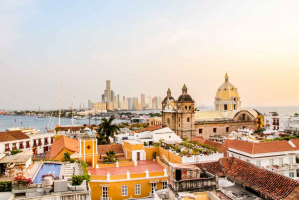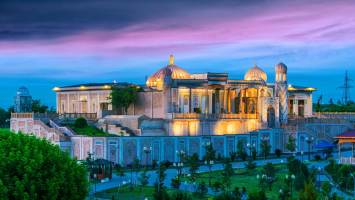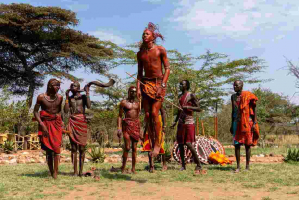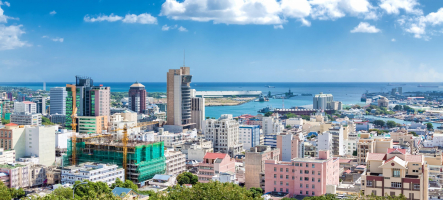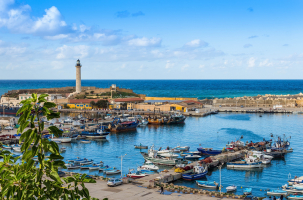Top 9 Things to Know before Travelling to Cambodia
Cambodia is a lovely country with many cultures, traditions, and religions. Here are some Things about Cambodia You Should Know.... read more...
-
Approximately 95% of Cambodians are Buddhists. Theravada Buddhism is the religion of almost all ethnic Khmers, who account for 90 percent or more of Cambodia's population. Since the 15th century, it has been the official state religion. All religions were outlawed during the Khmer Rouge regime, and monks were executed. Monks returned and temples were constructed after the Khmer Rouge regime was deposed. In 1989, Buddhism was reinstated as the official religion. In 2008, Cambodia had 4,000 gilded Buddhist temples filled with saffron-robed monks.
Cambodians are nice people by nature, so don't expect to be confronted if you're wearing a bikini top or no shirt for males when going through the capital. Expect to get insulted, though. Cambodia is dominated by Buddhism, and Cambodians are modest people, therefore keep that in mind when dressing.
Women must cover their shoulders and wear a skirt or pants that fall below the knees when entering pagodas, religious constructions, temples, or palaces. Last year, some tourists ended themselves in prison after posing naked at Angkor Wat.
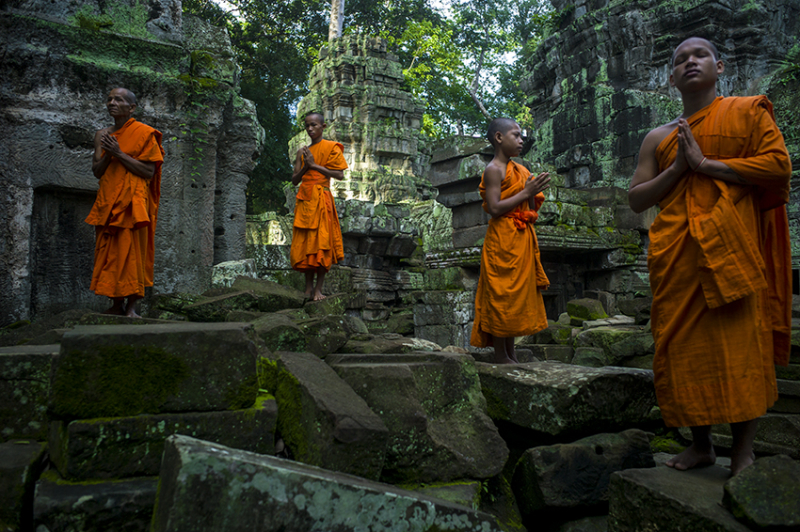
http://voices.nationalgeographic.com 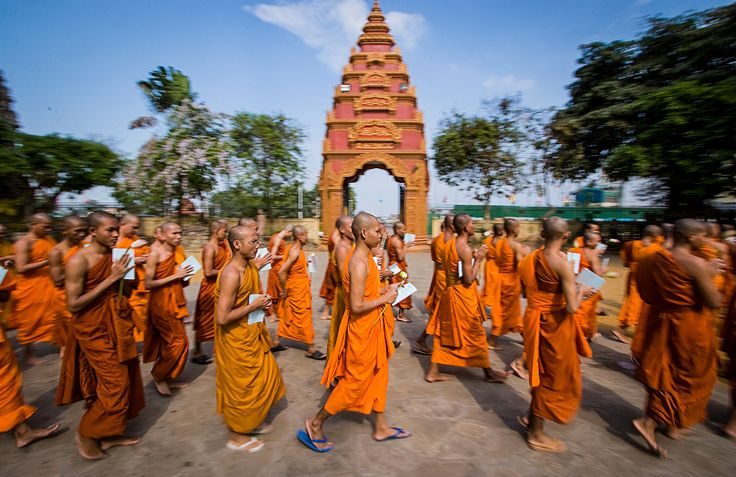
http://asiabuddhisminfo.blogspot.com/ -
In Cambodia, no one waves or shakes their hands. The official greeting is the sampeah, which can be done in a variety of ways to demonstrate respect. In front of the chest, make a lotus flower with both palms.
Cambodians customarily greet each other by clasping their hands together in prayer. They bow gently and raise their hands to chest level. This is known as Som Pas. The higher the hands and the lower the bow, the more respect is conveyed. When Cambodians meet, they will say Som Pas and Choum Reap Sur (Hello). When they leave, they will Som Pas and chant Choum Reap Lir once again (Goodbye). Som Pas is a welcome and respect gesture used by Cambodians. It would be disrespectful not to return a Som Pas when used as a greeting; in Western society, it is equivalent to refusing a handshake.
Western cultural impact is now recognized in Cambodia. Men in Cambodia frequently shake hands. Women, on the other hand, frequently stick to the customary greeting and avoid shaking hands because Cambodians are not used to touching, especially those of the opposite gender. Many Cambodian women in the United States, particularly the elder generation and new immigrants, are still hesitant to shake hands.
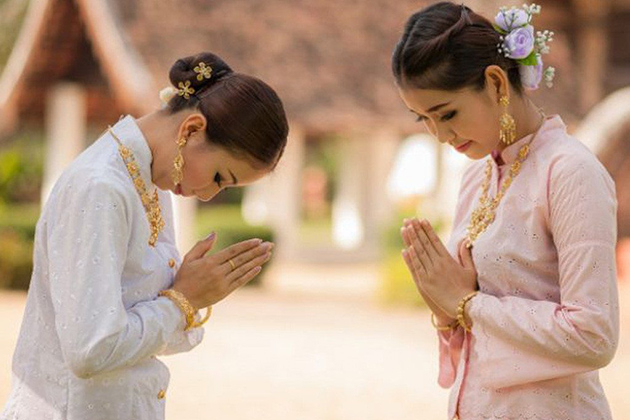
https://www.vietvisiontravel.com 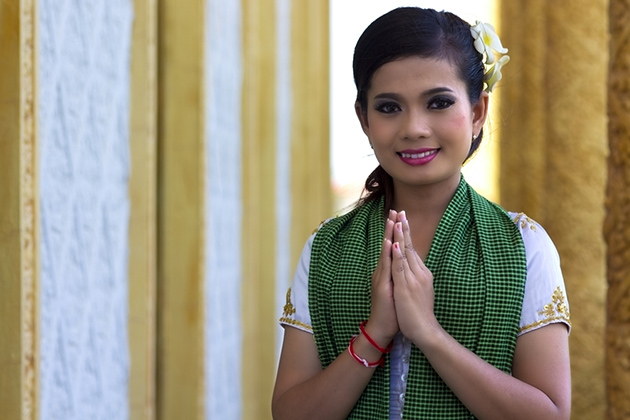
https://www.vietvisiontravel.com -
Cambodians are always smiling. In Cambodia, a smile is never far away, and Khmers are known around the world for their trademark grins. This quality, which is sometimes accompanied by a twinkle in the eye, helps first-time visitors feel at rest from the moment they step foot in the country, while returns feel at ease.
This does not always imply that they are happy or that they comprehend when they nod and grin in agreement, which can be frustrating. In Cambodia, losing face, which includes admitting you don't know anything, is a serious problem.
It's preferable to ask again if the smile is followed by a frightened chuckle. So, if the waitress grins, appears little perplexed, and laughs when you order your food without extra chilli, double-check your order.
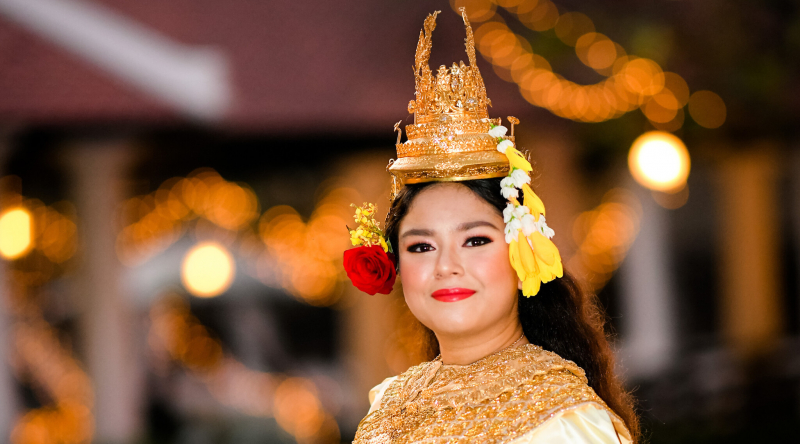
https://www.timesofisrael.com 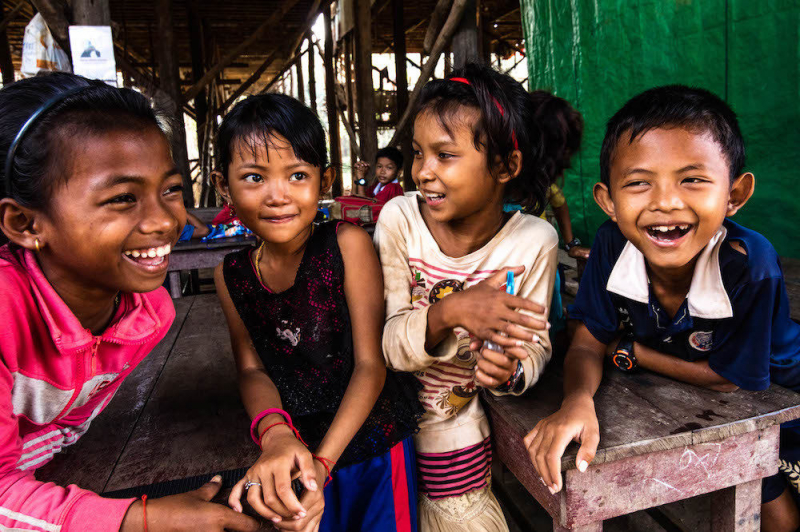
http://theirworld.org/ -
Most tuk tuk drivers seem to have just a loose knowledge of the geography of the area they work in and are not familiar with the sort of landmarks that Westerners normally use. Telling a tuk tuk driver a street name and cross street, for example, will almost always result in a blank expression.
However, because tuk tuk drivers nearly always know the names of local markets and pagodas (wats), it's a good idea to know which one is nearest to your home and give directions from there.
Don't expect others to remember exactly the destination that you want to go, especially if they pretend to know where they're going. It's advisable to plan your trip in advance, or use Google maps to guide you.
Don't be tricked into believing that pointing it out on a map will help; when it's read upside down and the driver is pointing vaguely somewhere, you'll quickly realize that many people can't read maps.
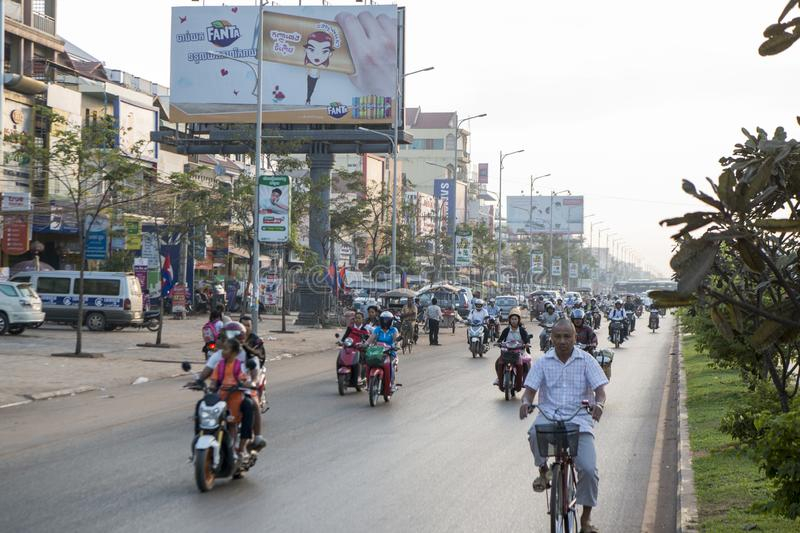
https://www.dreamstime.com/ 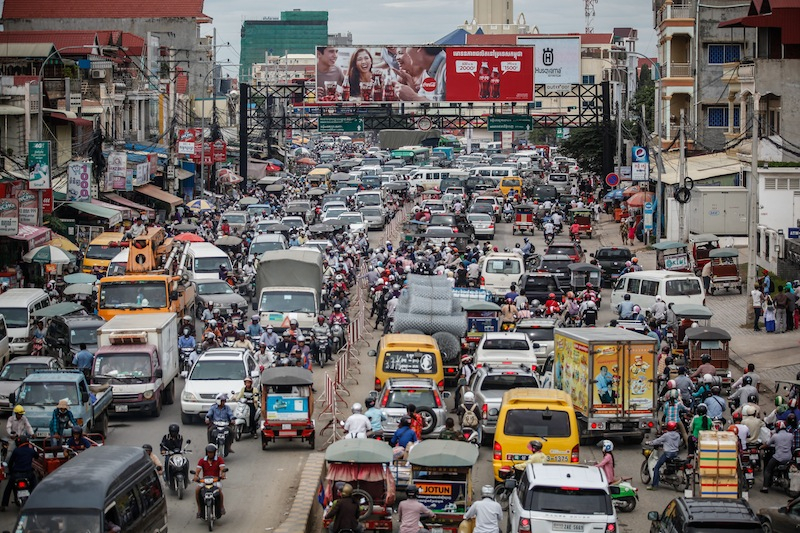
https://www.cambodiadaily.com -
Bargaining and haggling are crucial for an economical trip, especially when you have no idea what is exactly the price of products. This is among the top Things to Know before Travelling to Cambodia if you don't want to be overcharged. Practice your haggling abilities because the cost is negotiable unless there is a price tag. Because you're a tourist, expect to pay inflated prices, but never agree on the first price because it will be at least doubled.
Walking away from them often works because they'll call you back; if they don't, you've pushed them too far. Remember to agree on tuk tuk and motorcycle fares before getting in to prevent being overcharged when you attempt to get out.
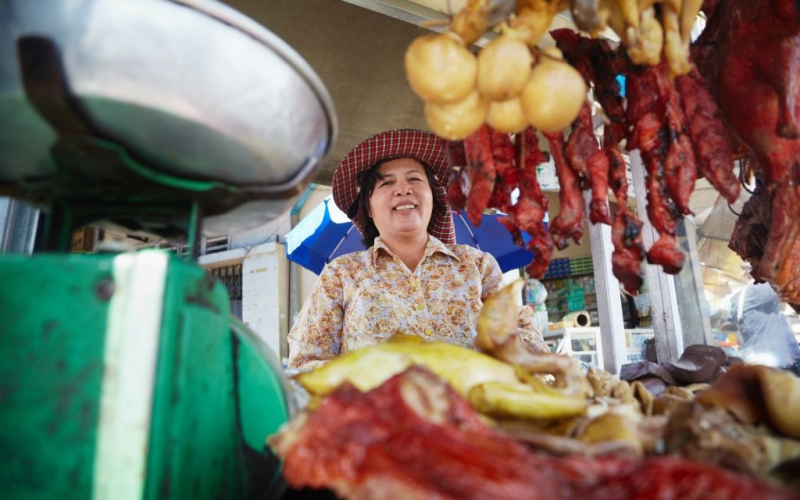
http://www.trazeetravel.com/ 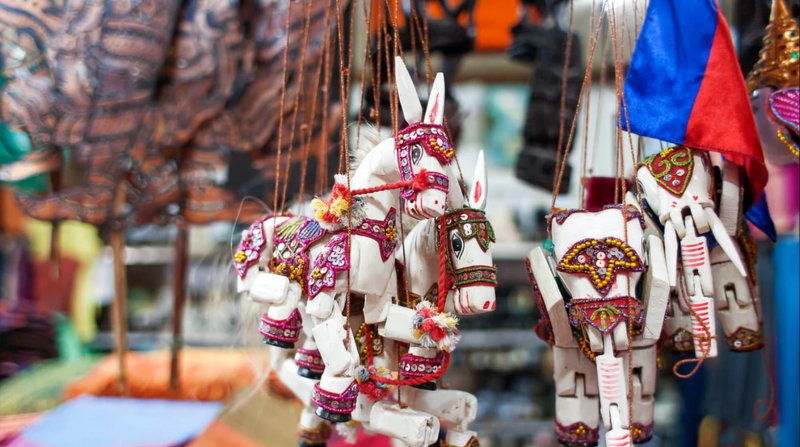
https://theculturetrip.com -
It's time to track down Riel. No, that isn't a typo; the Riel is Cambodia's national currency. However, the currency you need bring with you is US Dollars. Riels are typically used for modest transactions under a few dollars, with dollars being utilized elsewhere. Specifically, you'll be paying in US Dollars for everything that costs more than $1.
You'll be given Riel for any change less than $1. When you withdraw money from a Cambodian ATM, it will be in US Dollars or, in some situations, you may be given the option of choosing between US and Riel. Always use US because it is more commonly accepted and easier to grasp when converting. You'll also have a lot fewer notes in your wallet, making things considerably easier all around.
In Cambodia, little change rules, so don't expect to pay for your tuk tuk with a $100 or even a $20 bill. Also, keep in mind that torn notes, especially those of greater value, will not be accepted by many establishments. Wrinkled $100 bills are frequently rejected.
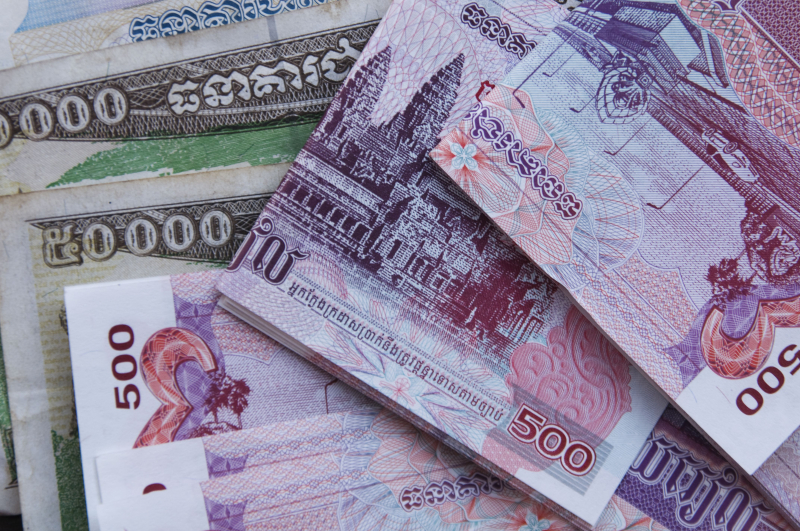
https://www.tripsavvy.com/ 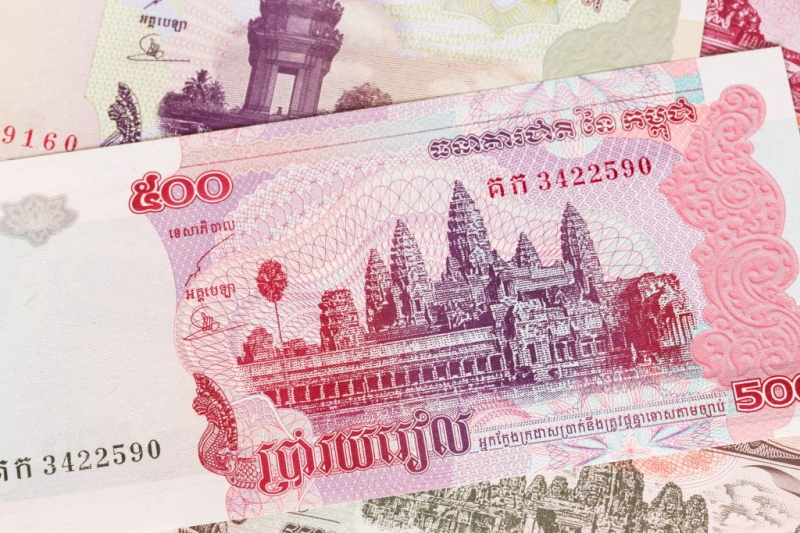
https://www.juwai.asia/ -
Despite the country's growing economy and growing middle class, poverty is rampant, and tourist sites are filled with begging and peddling. Throughout the day and night, children frequently sell books, bracelets, and trinkets in bars and restaurants.
Don't fall into the trap of buying or gifting, no matter how sweet or convincing they appear to be. This simply serves to fuel the cycle. Friends International, a non-profit organization, has compiled a list of travel advice.
Local children's adorable little faces make it difficult to resist buying items from them. They can be found begging in the streets or selling products in front of temples. Do not offer them money or food, and do not purchase from them.
It may come across as harsh but it devalues education when they obtain food or money from you. They and their parents may believe that continuing to labor over visitors is a better option than going to school. The Cambodian government agrees, and urges tourists who want to help the local community to donate to local schools and charities instead. More information can be found here.
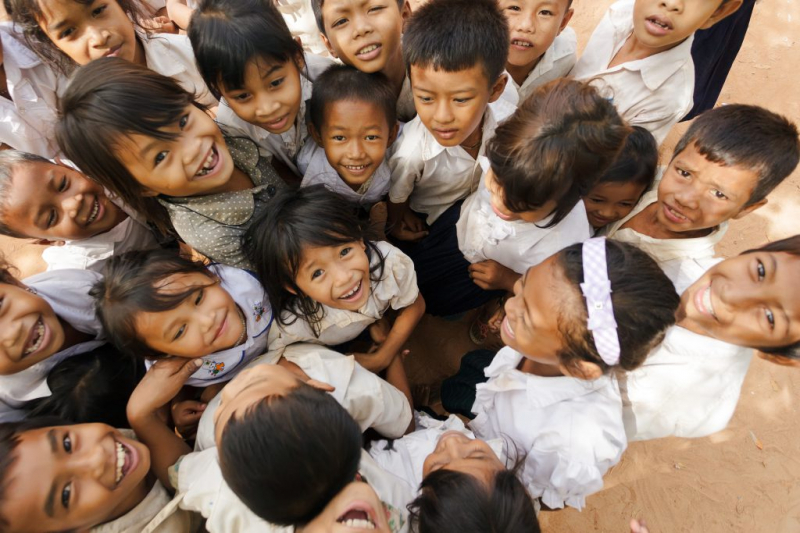
https://knowledgee.com/ 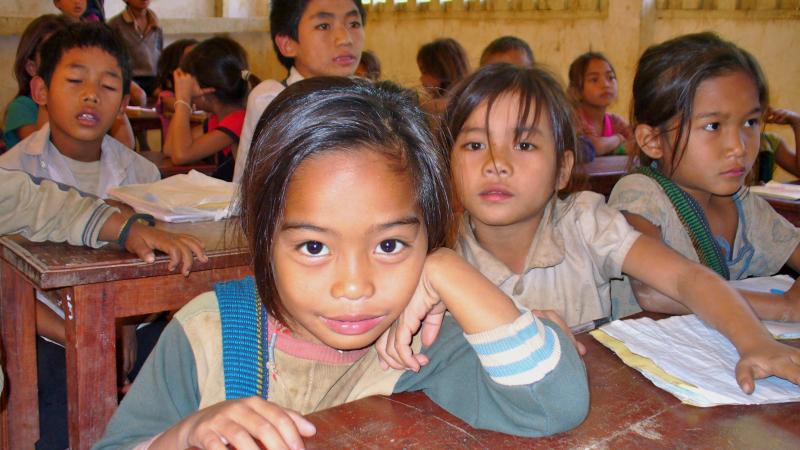
https://www.justgiving.com/ -
Elephant rides are available, with large crowds of tourists gathering around waiting their turn. Don't do it, regardless of how badly you want to. Those creatures go through unspeakable suffering, and contributing to the demand is unacceptably cruel. Young elephants are separated from their moms, confined, and abused in order to crush their spirits and make them suitable for riding. It's revolting.
The way elephants are ‘broken in’ for tourists to ride is truly horrific. Please don't ride them, I can't say it strongly enough. Education is the key here, so learn about why it’s not okay and then share it with others so they can learn the truth about this horrible industry for themselves. Interested in seeing
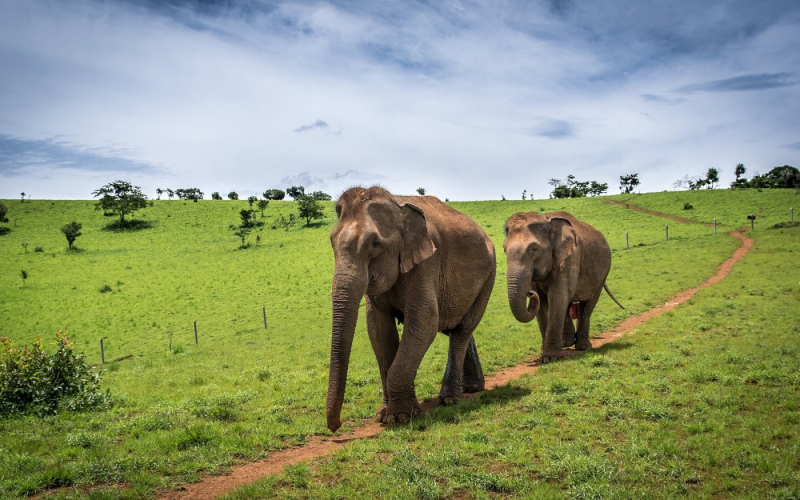
http://www.pentaxforums.com 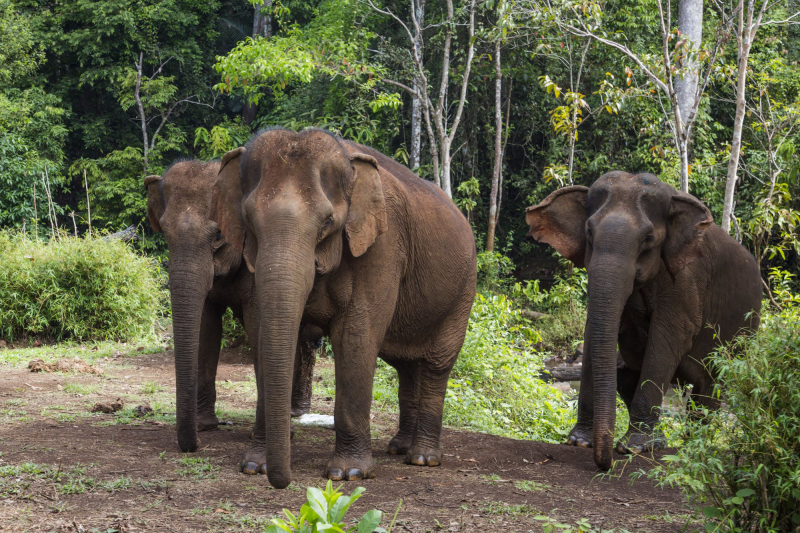
https://themightyroar.com -
Tuk tuks are the best way to get around town in Cambodia. These pointers will assist you in negotiating a price, staying safe, and arriving at your destination.
The tuk tuk has to be one of Cambodia's most enjoyable modes of intraurban transportation. The real term for them is the French word remorque, but everyone still calls them tuk tuks. These two-wheeled carriages towed behind a moto are a pleasant way to travel and are marginally safer than riding a moto, owing to their lower speed.When tuk tuk drivers encounter Westerners, dollar signs frequently float above our heads. As a result, it's preferable to agree on a price ahead of time rather than risk a fight over $2 in front of your house or at the restaurant where you're having a business dinner.
Negotiating a price ahead of time offers you the power to back out if you don't think you're getting a good bargain (and walking away usually drops the price substantially). Once you've established a rapport with a regular driver, you can pay what you believe is reasonable at the end of the ride, just like the locals.
- Pro tip: Keep your hotel's business card on you at all times so you can show it off.
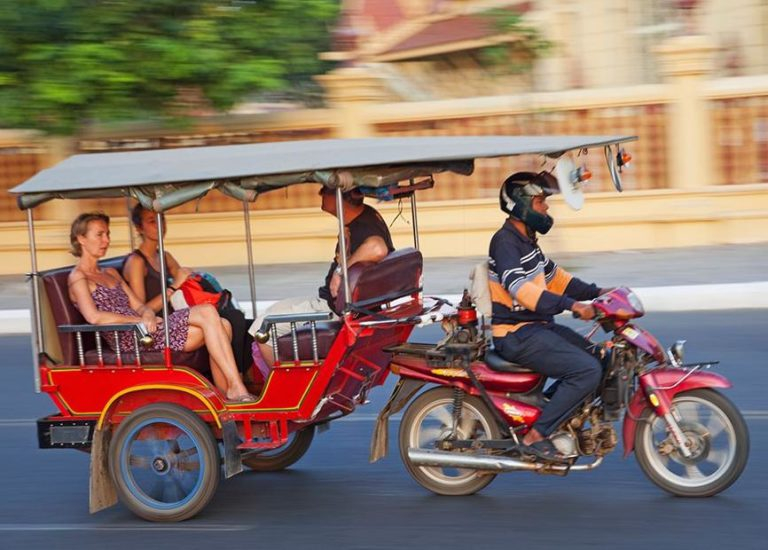
https://www.vanillamozi.com 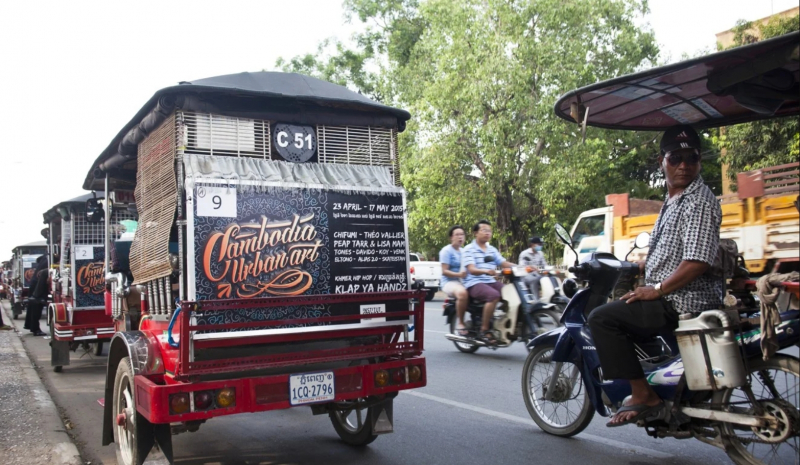
http://www.scmp.com/week-asia/













